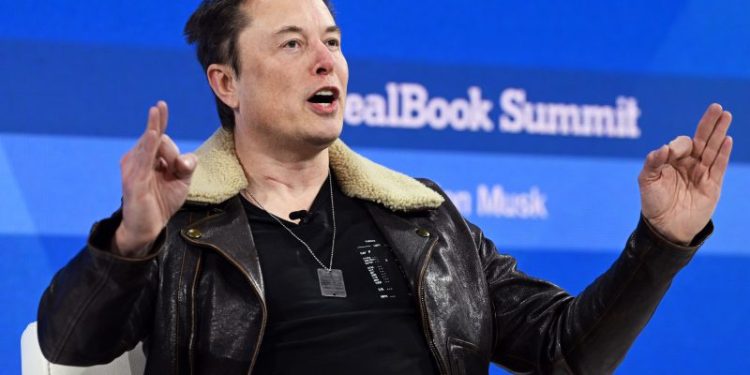“Elon Musk Unleashes Fiery Rant Subverting Advertisers Who Boycott X
Elon Musk, the billionaire CEO of Tesla and SpaceX, recently targeted advertisers who boycott his show “The Joe Rogan Experience” in a social media rant full of expletives.
In an apparent reaction to the fact that some advertisers are pulling away from programming on X, Musk posted an expletive-filled rant on Twitter that decried the movement and called on his followers to support the shows they watch.
“If you’re boycotting shows, you’re not only attacking free speech, you’re also attacking people’s livelihoods,” he wrote. “Do you know how many people’s jobs rely on X? People need to eat.”
The statement, which has since been deleted, sparked a heated debate on the internet. It also caused some companies to distance themselves from Musk and his views.
One such company was Kia, which tweeted: “We don’t condone the use of such language. We believe in building a diverse, inclusive and respectful society.”
Musk has since apologized for his remarks and clarified his position on the topic. “I would like to apologize for the misconstrued remarks I made earlier. I support freedom of speech for all people and disagree with any censorship or boycotts of any shows or media outlets,” he said.
The incident has reignited a conversation about censorship, freedom of speech, and corporate responsibility in media. It also highlighted the power of social media and the ability of influential figures like Musk to shape a discussion.
As the debate continues, advertisers are being forced to re-evaluate their policies and patient customers are learning that their voices may be heard if they speak up. With companies that choose to boycott X potentially facing the wrath of millions of social media users, it will be interesting to see if the debate leads to a resolution or just creates more noise.
Elon Musk, the billionaire CEO of Tesla and SpaceX, recently targeted advertisers who boycott his show “The Joe Rogan Experience” in a social media rant full of expletives.
In an apparent reaction to the fact that some advertisers are pulling away from programming on X, Musk posted an expletive-filled rant on Twitter that decried the movement and called on his followers to support the shows they watch.
“If you’re boycotting shows, you’re not only attacking free speech, you’re also attacking people’s livelihoods,” he wrote. “Do you know how many people’s jobs rely on X? People need to eat.”
The statement, which has since been deleted, sparked a heated debate on the internet. It also caused some companies to distance themselves from Musk and his views.
One such company was Kia, which tweeted: “We don’t condone the use of such language. We believe in building a diverse, inclusive and respectful society.”
Musk has since apologized for his remarks and clarified his position on the topic. “I would like to apologize for the misconstrued remarks I made earlier. I support freedom of speech for all people and disagree with any censorship or boycotts of any shows or media outlets,” he said.
The incident has reignited a conversation about censorship, freedom of speech, and corporate responsibility in media. It also highlighted the power of social media and the ability of influential figures like Musk to shape a discussion.
As the debate continues, advertisers are being forced to re-evaluate their policies and patient customers are learning that their voices may be heard if they speak up. With companies that choose to boycott X potentially facing the wrath of millions of social media users, it will be interesting to see if the debate leads to a resolution or just creates more noise.










